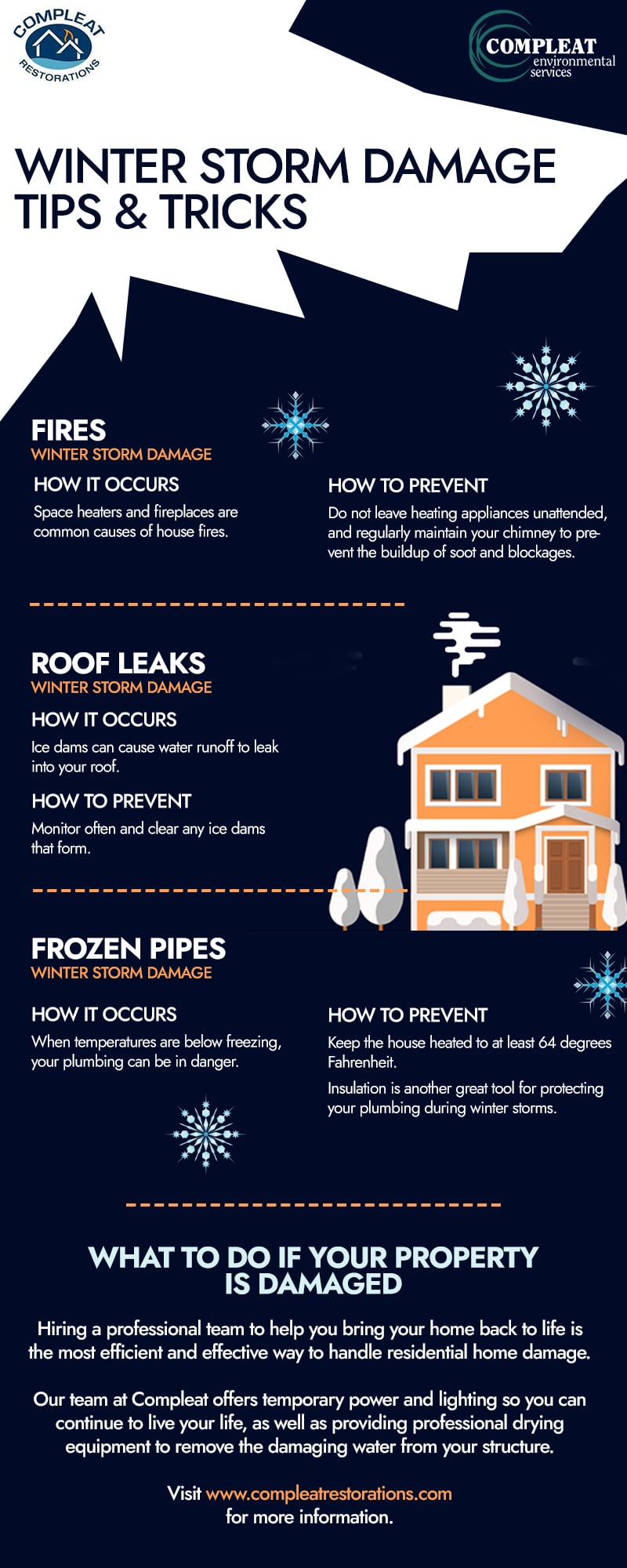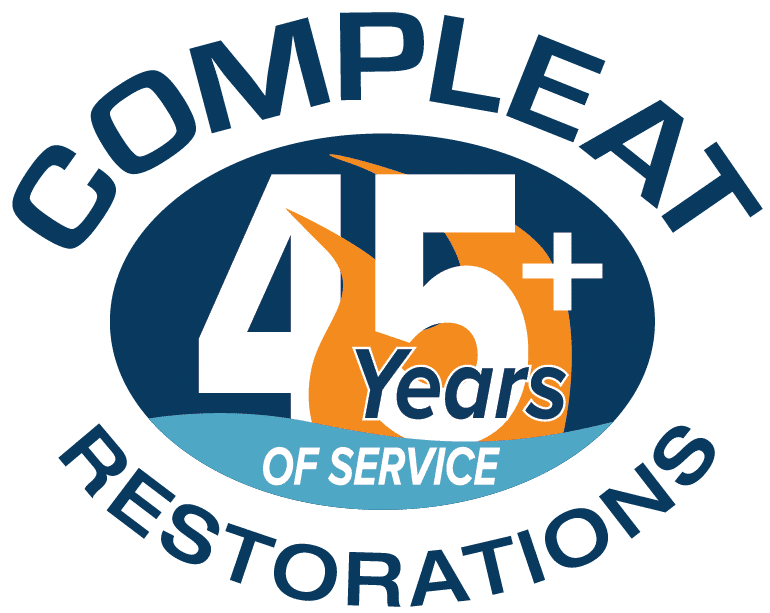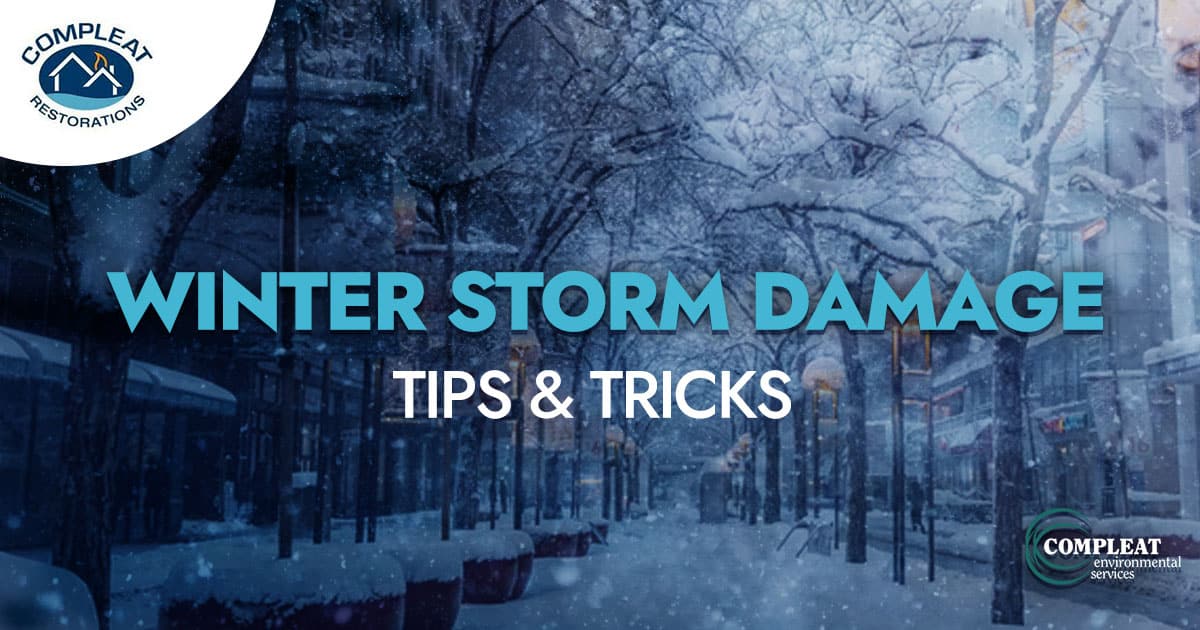Winter storm damage can happen at any time, to any home. Do you see a lot of snowfall during the colder months or not? If yes, then there are plenty of ways for disaster to strike. Taking preventative measures against property damage is crucial.
Are you gearing up for a harsh winter or seeking information to deal with existing property damage? This article will cover all the tips and tricks you need for storm damage prevention and restoration. We’ll examine what to expect from heavy winter storms and what precautions to take. In addition, we’ll dive into what home repairs and treatments might be in need after any sort of winter storm damage.
What Kind of Damage Should I Expect from a Winter Storm?
Did you know that Pennsylvania ranks an average of #19 out of all the United States in terms of snowfall each year? It’s no wonder that there is plenty of need for storm damage restoration when it comes to the snowy winter months. Here are some common types of winter storm damage:
Roof Leaks
Snow and winter storms can affect your property in a wide variety of ways. Ice dams can cause water runoff to leak into your roof; It can even find its way into your home through the roof and into the walls. Heavy buildup on a rooftop can cause a roof collapse.
The extreme temperatures and the effects of freezing water can cause problems in every part of your roof. Any holes can become a more serious problem. It is often the snow can just be too much for the roof itself to hold up from the weight.
Frozen Pipes
When temperatures are below freezing, your plumbing can be in danger. Keeping your house well-heated can keep any issues from ever arising, but in the case of a power outage, extra precautions should be taken. Frozen pipes are one of the most common types of winter storm damage.
Pipes will burst when the water freezes and expands resulting in burst frozen pipes. This can range from PVC pipe systems for watering your property to the plumbing within your house. Particularly when utilities like power are lost to the storm, the loss of heat can cause many issues wherever water is present inside your home.
Because pressure builds as the water freezes and expands, wherever the burst occurs will continue to release water at high pressure. This is even worse inside the home because you are likely not going to notice it before major damage happens. This isn’t something you need to be worried about as long as you maintain a good temperature in your home.
Fires
There are other safety concerns that are not directly caused by winter storms. The highest amount of energy consumption comes during the winter when heaters—among other appliances—are used often and for extended periods of time. Unattended heat sources can threaten your home if something happens to them when they aren’t supervised.
Space heaters are the cause of nearly 50% of all home fires. They are prone to igniting fabric and melting electrical cords. Other common fire starters are fireplaces, where the flue can become clogged with debris that poses a threat. Make sure both are kept under close watch and maintained properly all winter long.
Ways to Prevent Winter Storm Damage
While Mother Nature can’t be stopped if she doesn’t want to be, winter storm damage prevention is a must for anyone living in areas with colder seasons. There are quite a few different ways you can prepare your home and family for potential emergencies.
- Keep the house heated to at least 64 degrees Fahrenheit (17.5 degrees Celsius) if you’re going to be gone for long periods of time. It only takes half of a day for water to begin freezing in a pipe if at a low enough temperature.
- Insulation is another great tool for protecting your plumbing during winter storms. You can buy insulation from hardware stores to wrap individual pipes, or go the extra mile and further insulate your entire house.
- Fires are always unexpected and often start with no one around. You can’t be everywhere at once, but your system of smoke detectors can! Ensure that every device is kept stocked with sufficient batteries and in working order for your peace of mind and protection.
- Properly handle your heat sources to avoid fire hazards. Do not leave heating appliances unattended, and regularly maintain your chimney to prevent the buildup of soot or other blockages.
- Prepare an emergency plan for your household so that everyone is aware of how to deal with any threatening winter storm damage. This may look different for each home, but make sure to cover your bases. This could mean a fire escape plan or instructions for turning off power and water.
It’s better to take the time to prepare correctly than be caught off guard when a problem arises.
Here’s a graphic guide you could refer too.

What to Do If Your Property is Damaged
If you are experiencing a property damage emergency, it’s important to stay collected and make sure you take the proper steps to prevent further issues. Make sure everyone in your household is accounted for and knows what precautions to take.
Roof issues are urgent and require attention to stop future damage. This may include clearing ice dams, heavy snow removal, repairing the roof itself, and more. Flood damage can be costly and time-consuming as well. It is during the colder months that water becomes a difficult situation to deal with.
Fire damage can expose your home to further harm. It’s important to board up any destruction that leaves your house at the mercy of the elements. Your belongings may need to be cleaned, and any water damage from putting out a fire needs to be treated as well. Furthermore, the smoke damage will require special cleaning operations.
Left untreated, smoke odour can linger for a long time after the fire. Professional-level tools and techniques to reduce smoke odour including negative air containment, deodorization, ozone, sealing, and thermal fogging. Depending on the type of loss, repairing your property involves a variety of repairs.
Compleat is well-versed in every single aspect of winter storm damage restoration. We make sure all of your winter storm property damage needs get resolved as soon as possible.
Compleat Restorations is Here to Help
Hiring a professional team to help you bring your home back to life is the most efficient and effective way to handle residential home damage. Our team at Compleat offers temporary power and lighting so you can continue to live your life, as well as providing professional drying and dehumidification equipment to remove the damaging water from your structure.
(Pssst! Did we mention we’ll get to your house in under 2 hours? 24/7, 365 days a year.)
Compleat was founded in 1978, but in 2012 we ourselves were the victims of a workplace fire. This gave us the unique (and discouraging) experience that we think back on as we put in the work to salvage and restore your precious property, just like ours.
Whether you are currently in need of assistance, or just looking to prepare for potential winter storm damage, head to our Residential Storm Damage page for more information.



